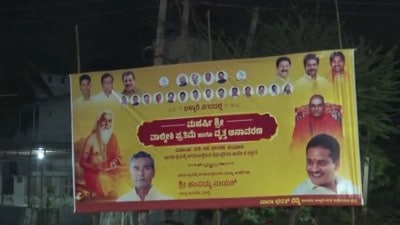In English, please
The sharp growth in direct tax revenue 8212; collections are up 44 per cent as per latest data 8212; is obviously the cumulative result of improvements in tax administration...

The sharp growth in direct tax revenue 8212; collections are up 44 per cent as per latest data 8212; is obviously the cumulative result of improvements in tax administration and rationalisation of tax policy implemented in recent years. Reductions in tax rates and changes in tax slabs did not reduce tax collections; quite the opposite. This is important to restate because 8216;progressives8217; in India have always rejected the Laffer curve, which predicts tax collections improve when tax rates are lowered because incentives to evade taxes are reduced. It has not been ten years that India radically shifted to rational direct tax rates, and the paradigm shift in collections is apparent. Politicians calling for higher rates and more taxes should admit that the time has come to bury the old debate. Indeed, it is time to open a new debate: how best to simplify the tax code.
The Tax Information Network TIN that reduced the scope of evasion and improved tax administration was an essential part of recent reform. TIN has been instrumental in making employers and taxpayers provide correct data about tax deduction at source TDS. Paper-based TDS certificates that could not be cross-verified had created a corruption network pretty much invulnerable to tax sleuths. TIN of course would not have succeeded without the fine job done by the National Securities Depository Limited NSDL, the same body that safe-keeps stocks and shares of the Indian public. NSDL8217;s efforts ensured TIN didn8217;t remain restricted to major urban centres.
A simpler tax code, the government has told us, is a work-in-progress now. The tax code, as any taxpayer can testify after five minutes of perusal, is a document designed to frighten and befuddle. Even the language is archaic. Perhaps, that is where the first reform should be. A 21st tax code in 21st-century English. Next, the code needs to be smaller. Third, it needs to be intuitive. Let8217;s put it this way: the tax code as it stands now can be easily understood by P. Chidambaram, the reputed tax lawyer; the tax code that must come should be easily comprehensible to voters who elected P. Chidambaram, the reformist finance minister.
- 01
- 02
- 03
- 04
- 05































